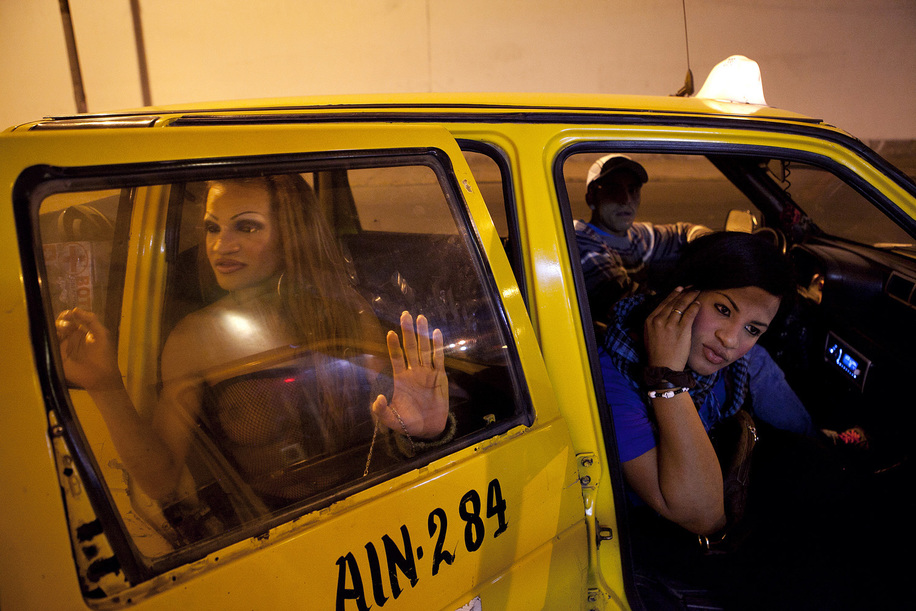

Like many other countries worldwide, there is a stereotype in Peru that trans women are only capable of working as hairdressers or sex workers. But, because of high competition for salon work and the need to pay for studies, many trans women are relegated to prostitution. Here Camila, left, gets out of a taxi after a long night of dancing.
Through a Woman's Lens Honorable Mention
A Light Inside
Photographer: Danielle Villasana
Through a Woman's Lens Honorable Mention
Exhibit Title: A Light Inside
Location: Peru
Tamara, the first trans woman I met in Lima, Peru, often told me she wasn’t going to live past 30. How could she, she’d ask, when society treats her as less than human? Like a self-fulfilling prophecy, Tamara's death this year due to HIV and Tuberculosis shortly followed her 30th birthday.
Through years of documenting the hardships trans women face, I’ve realized that an early death is more common than a long life. In Latin America, which leads the world in homicides of transgender people, most trans women die or are murdered before they reach 35 and HIV prevalence is nearly 50 times higher than the general population.
Latin America’s chauvinistic and conservative culture discriminates trans women, seriously threatening their health, security, and employment prospects. With few options or economic support, many practice prostitution where they're at greater risk of violence and abuse.
Without legal protections, many cases of violence and murder go undocumented, keeping these human rights abuses invisible.
Motivated by my desire to visually communicate the challenges confronting our world, I pursue personal projects that focus on human rights, women, identity and health. Because ethics are crucial in today’s media-inundated world, I dedicate myself long-term to issues that are underreported or sensationalized in the media.
Through my years-long work with transwomen in Lima, Peru, I developed close relationships with the people I photographed, who allowed me to photograph both daily life moments and sensitive subject matter such as death, violence, and substance abuse. This ultimately helped me show a more accurate and balanced picture of what trans women face due to societal discrimination throughout this region.
An in-depth look at the causes and consequences of transphobia is severely lacking in the media. Furthermore, traditional media typically focuses on the act of sex work, maintaining the trope that trans women are hyper-sexual objects only capable of prostitution. As a way to combat these stereotypes, I have aimed my camera on their personal lives with friends, family and partners rather than their lives on the streets. When photographing the streets, I strive to convey the tight-knit connections between the women, the abuse by law enforcement, the discomforts of prostitution or the quiet, quirky moments that are hidden from mainstream media.
I believe when media producers continue to narrowly construct these women as objects, society will fail to include them in humanity. If society can’t see them as human, how will people see that they deserve rights and respect just like any other? As documentary photographers, it is our duty to show society what they cannot see due to blinding institutional prejudices. My ultimate goal is to foster understanding and generate conversation about the challenges trans women face in Latin America.
Amnesty International Peru
UNAIDS Peru
Feminas Peru
Make Comment/View Comments